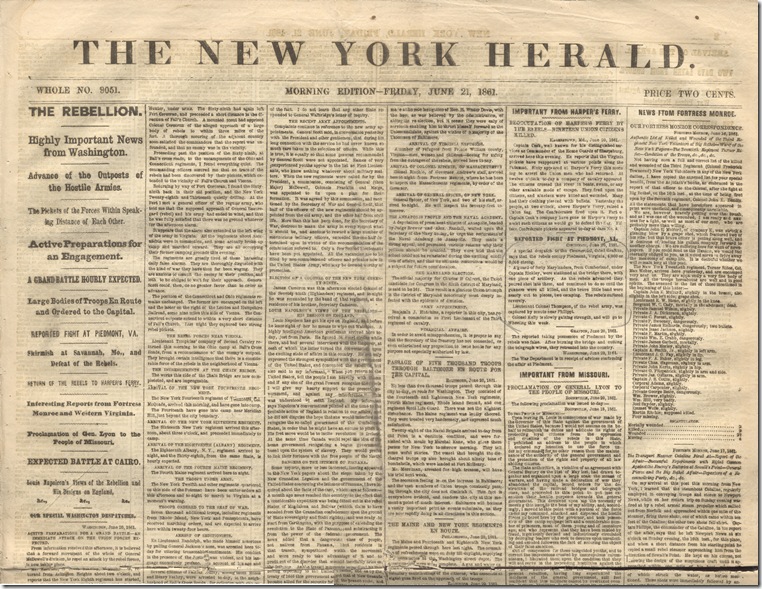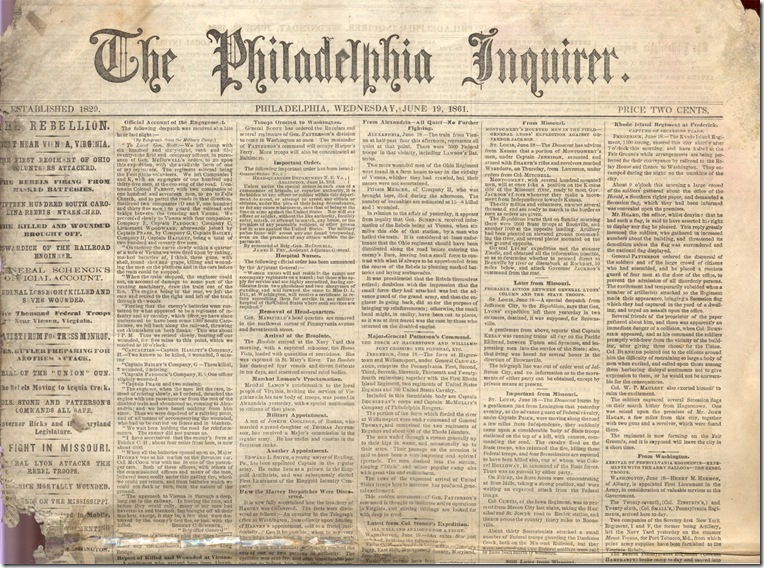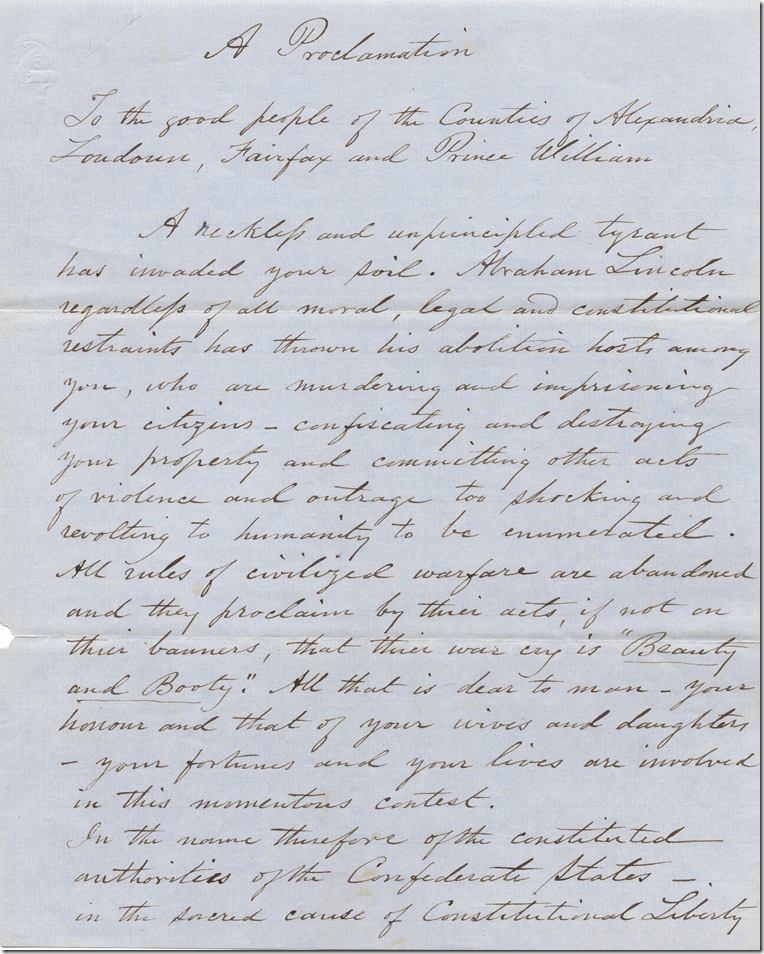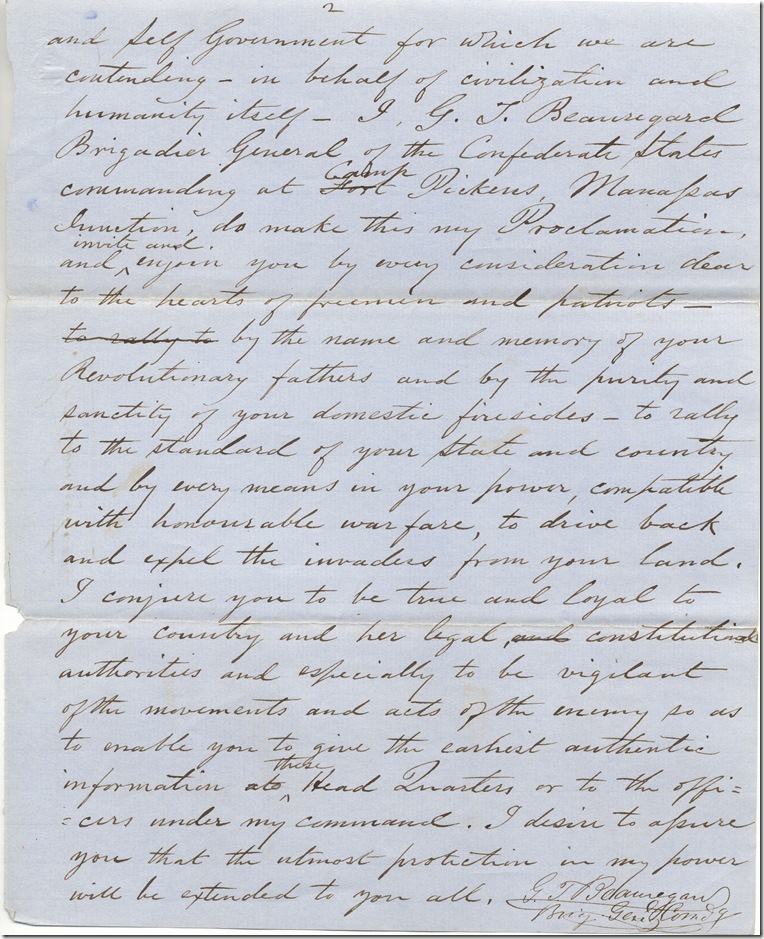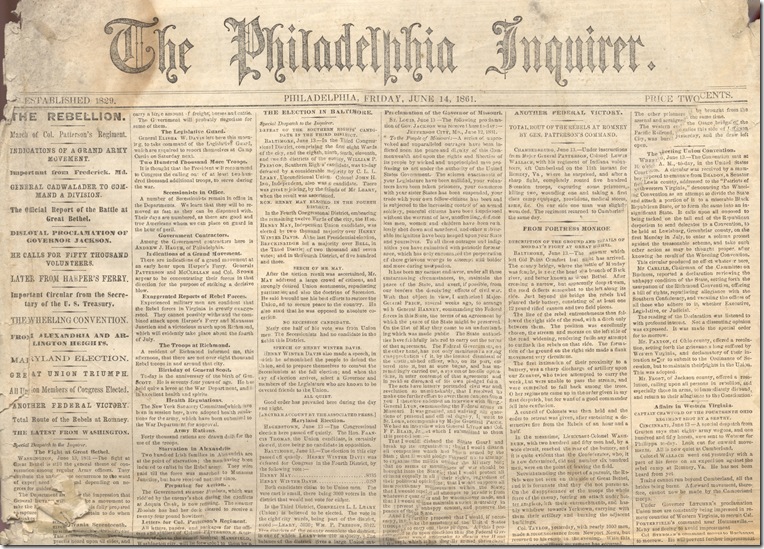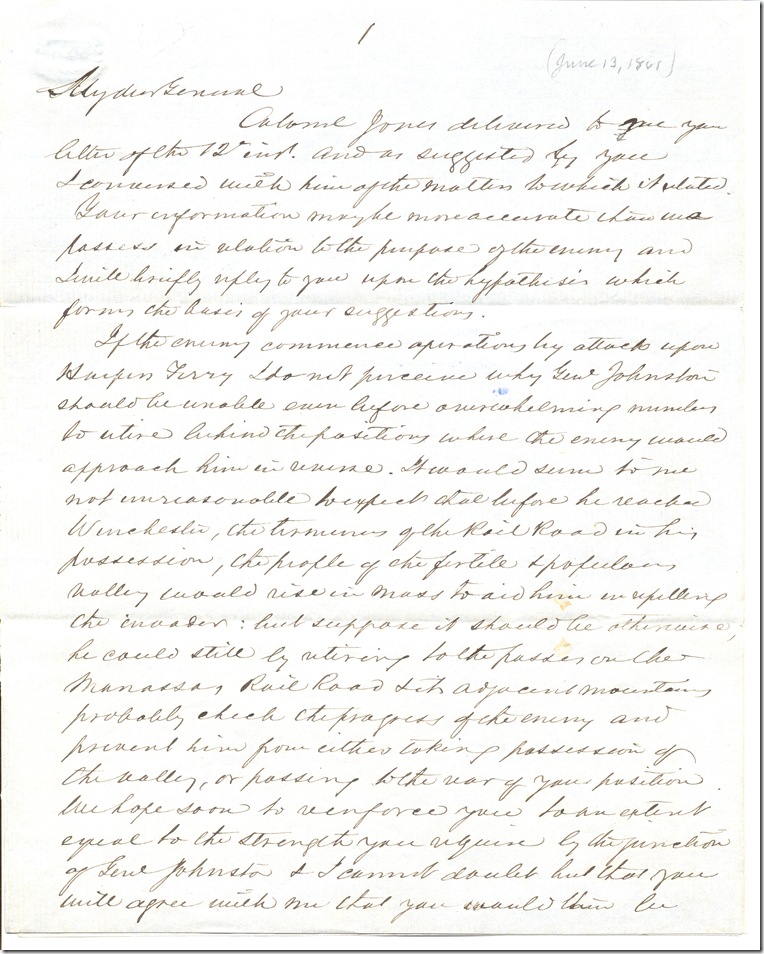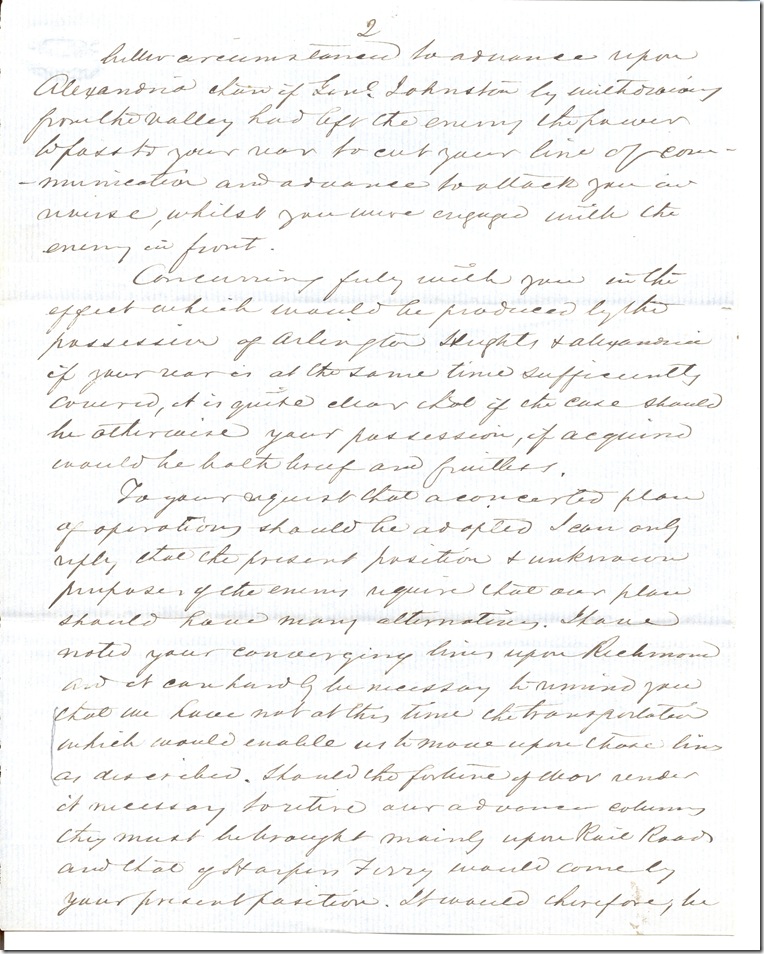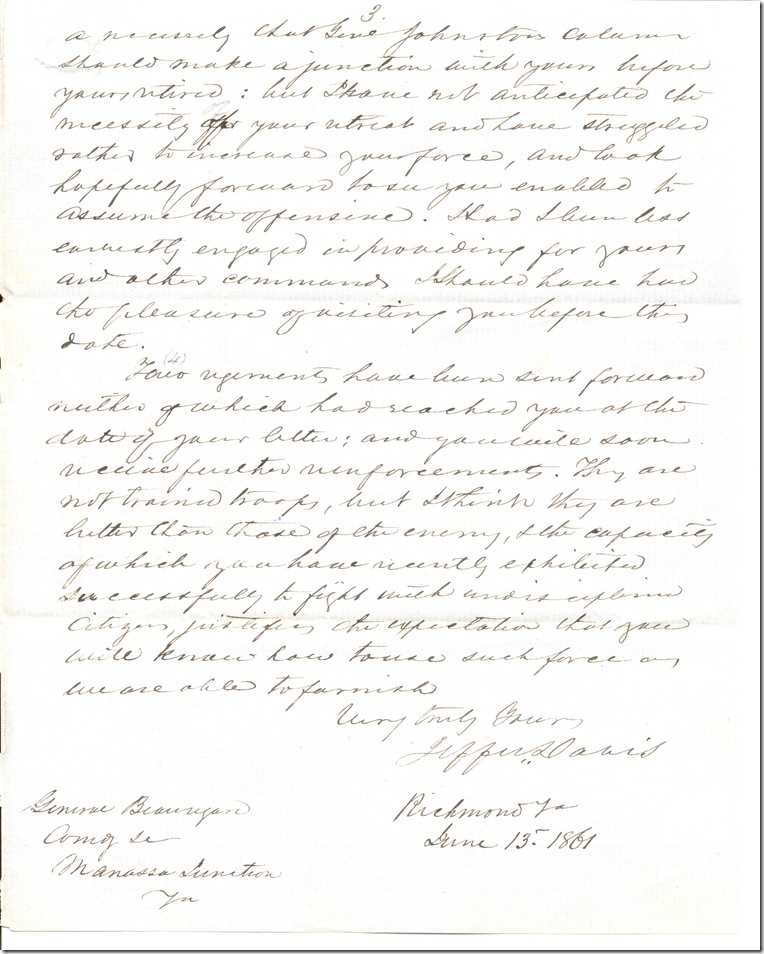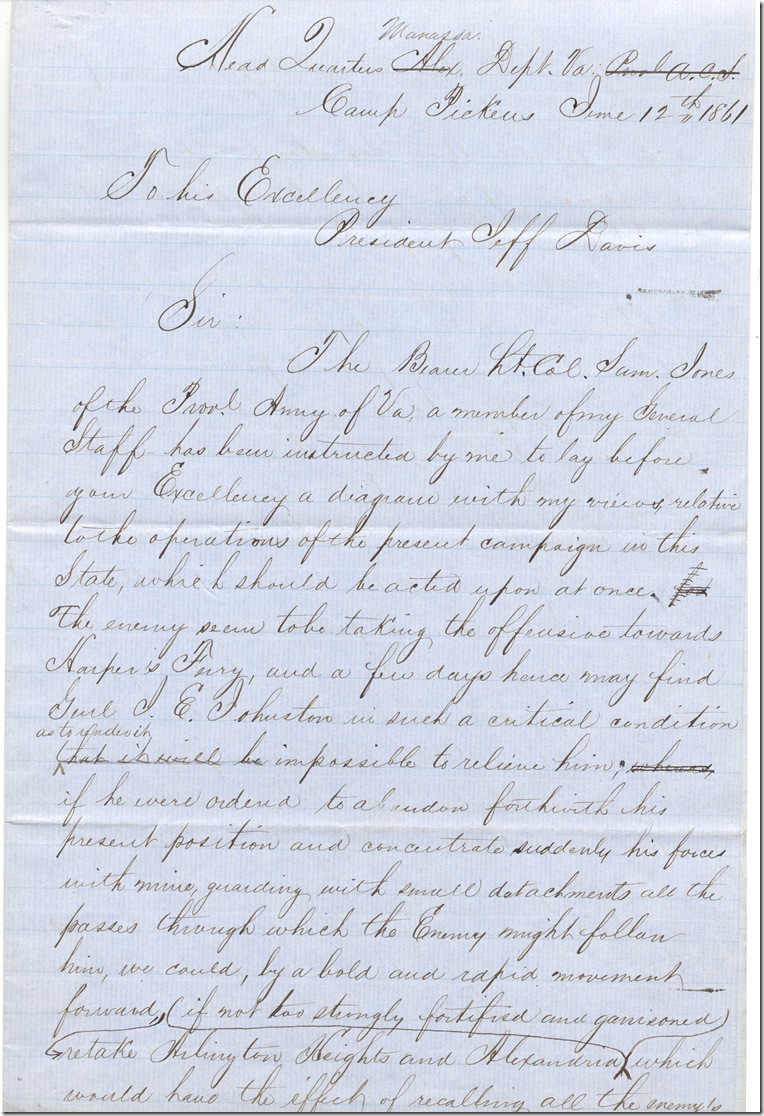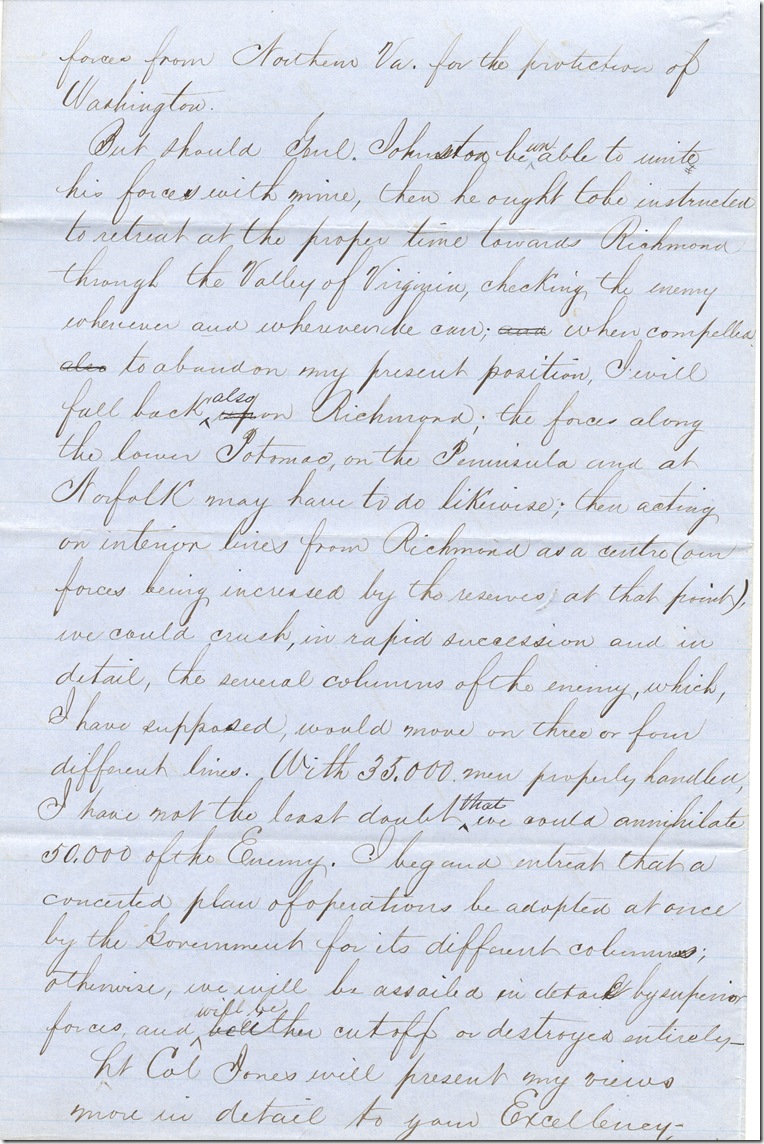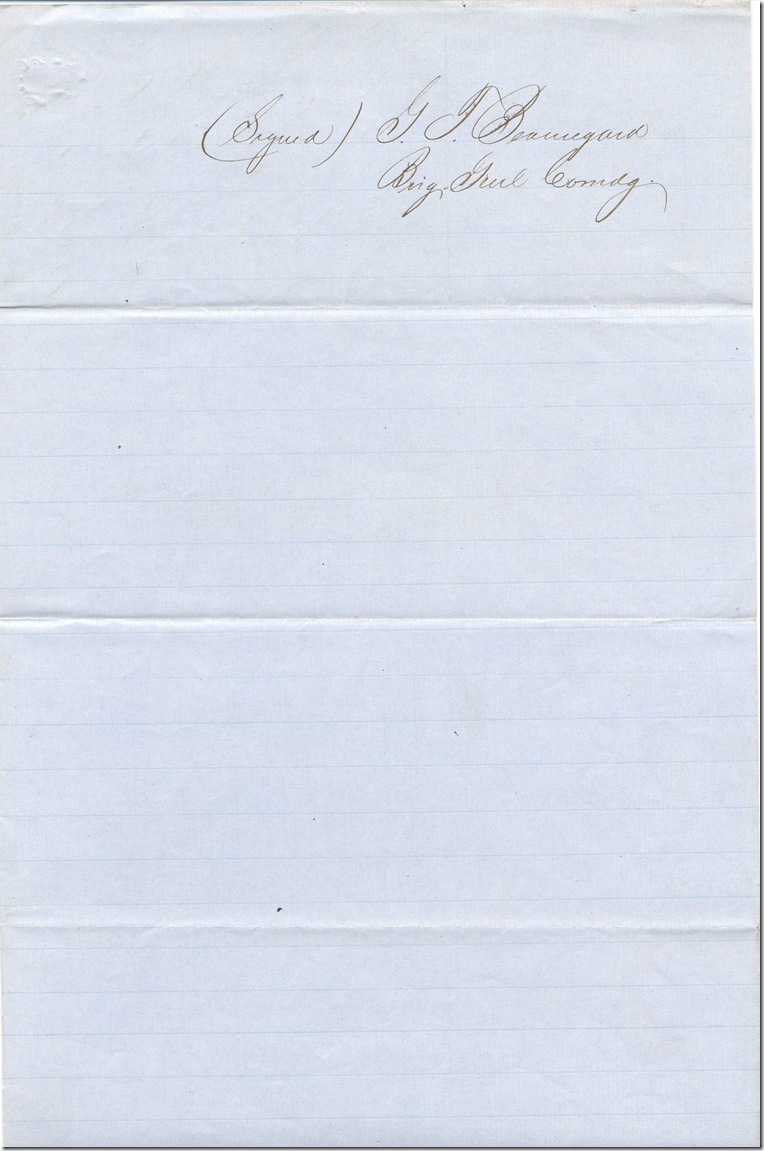Anne and Robert Armstrong lived in Shelbyville, Tennessee, but at the outset of the war Anne and their children went to Pittsburgh to stay with her parents, Henry and Mary Warner. Anne was the great-aunt of the poet Marianne Moore and these letters are preserved as part of Marianne Moore’s family papers.
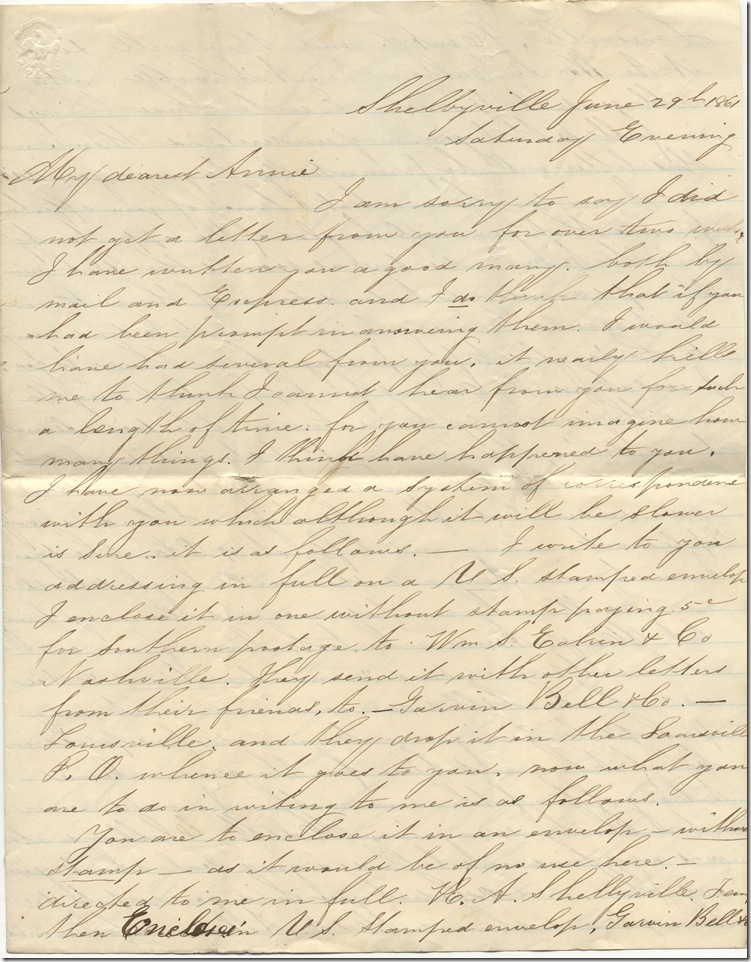
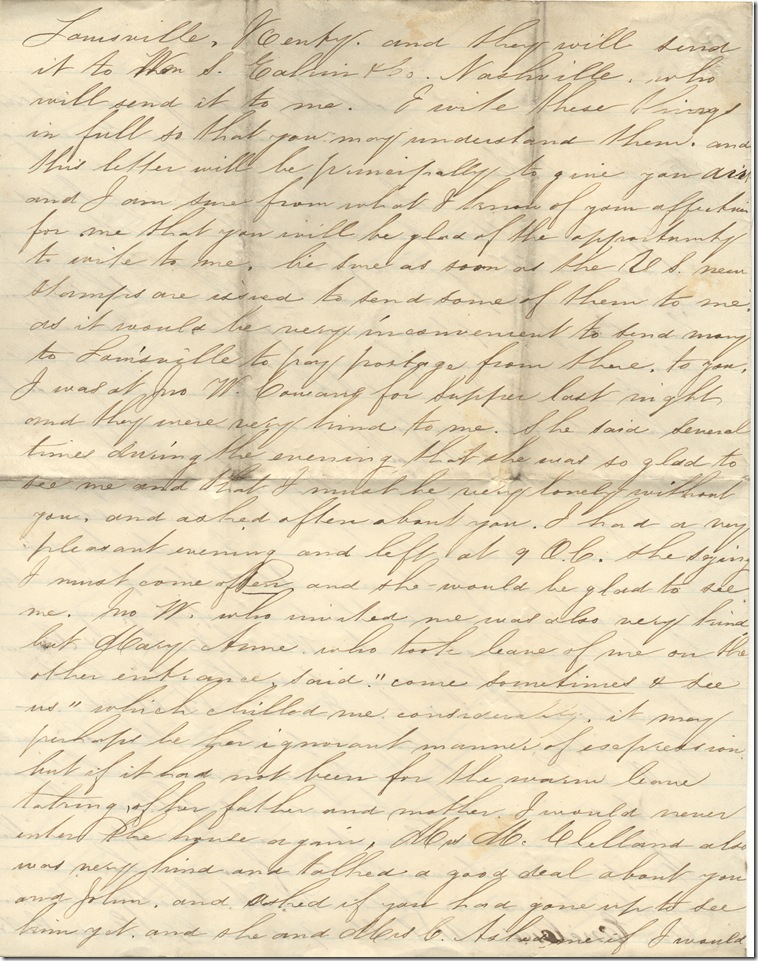
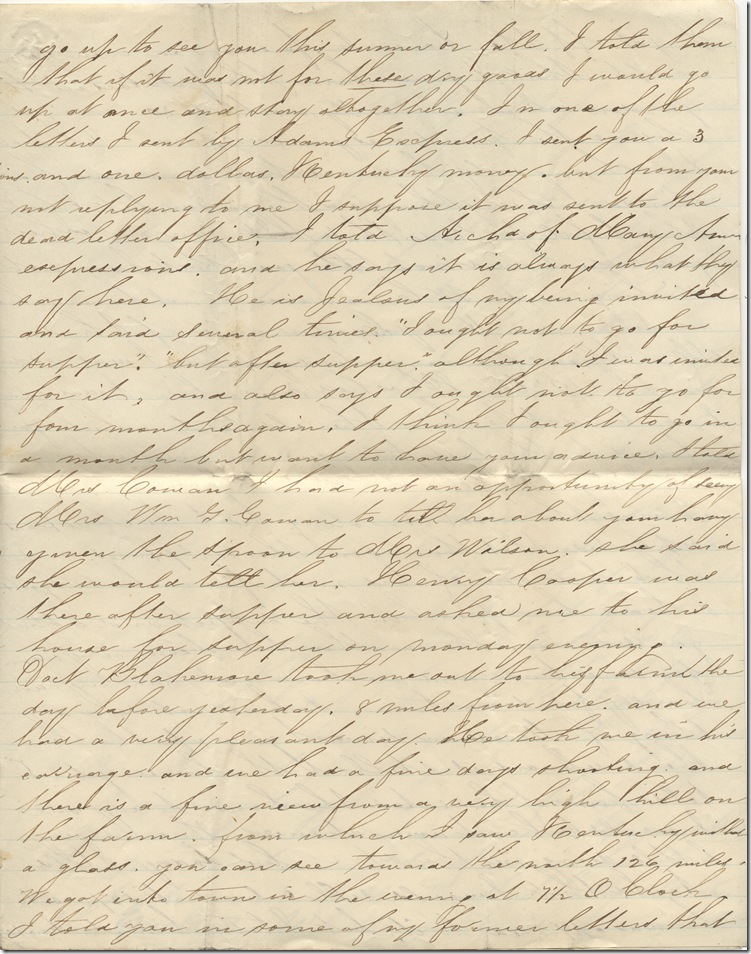
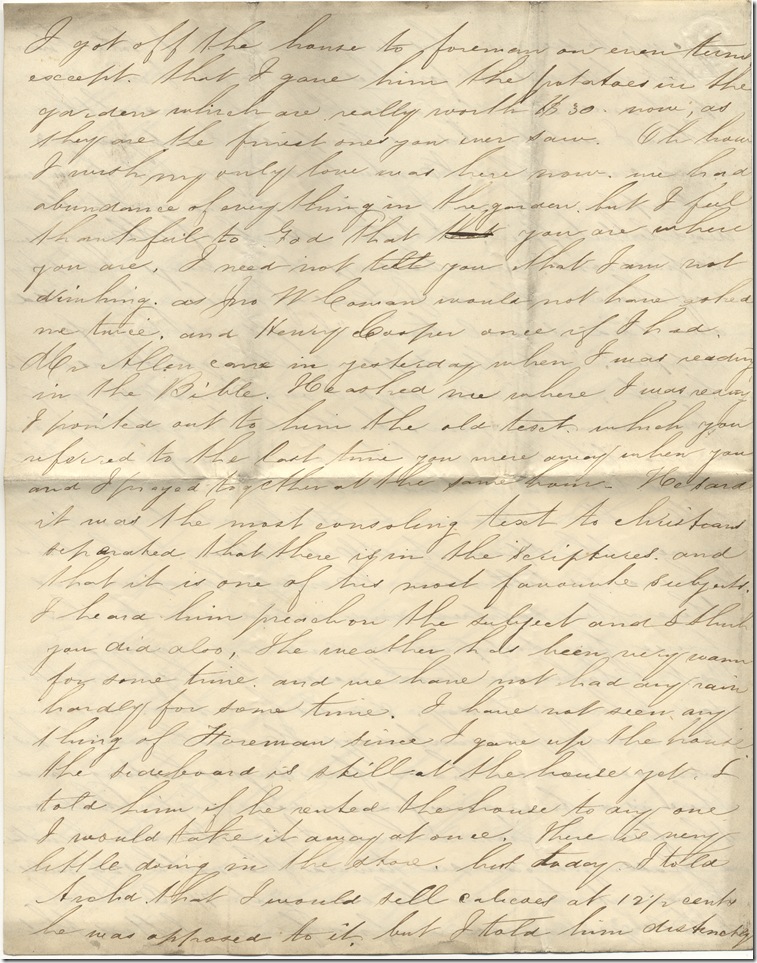
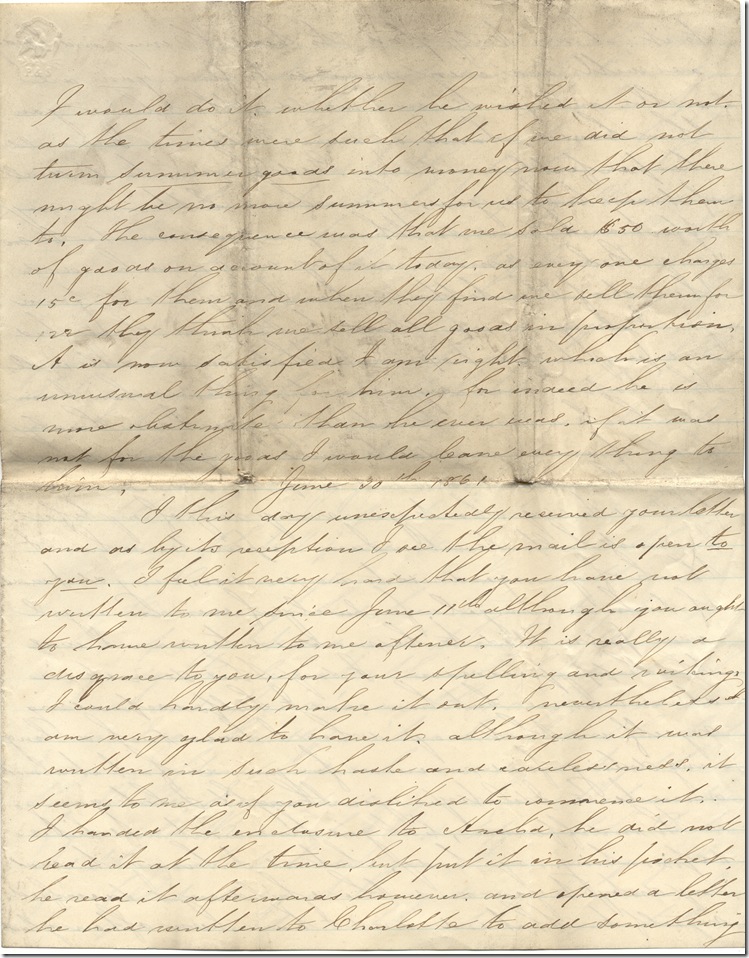
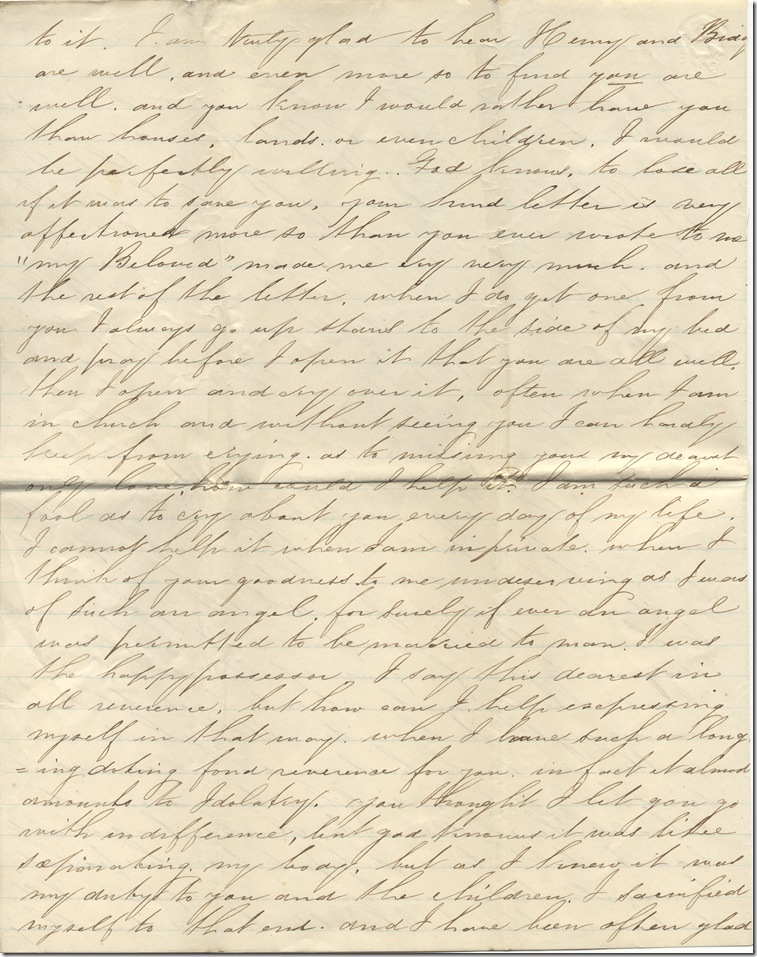
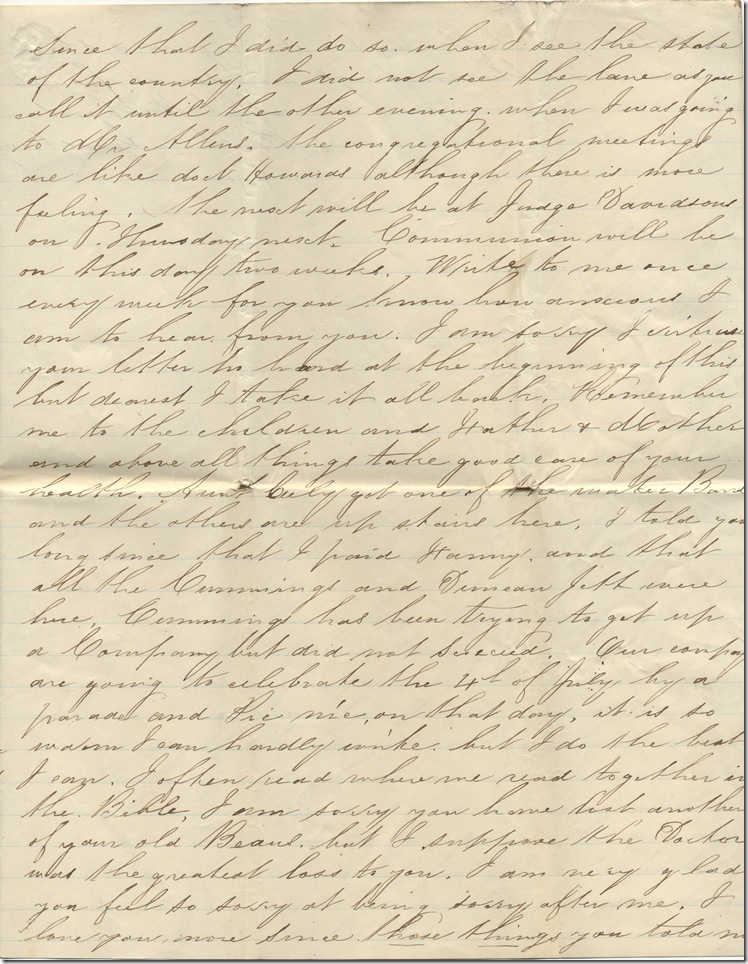
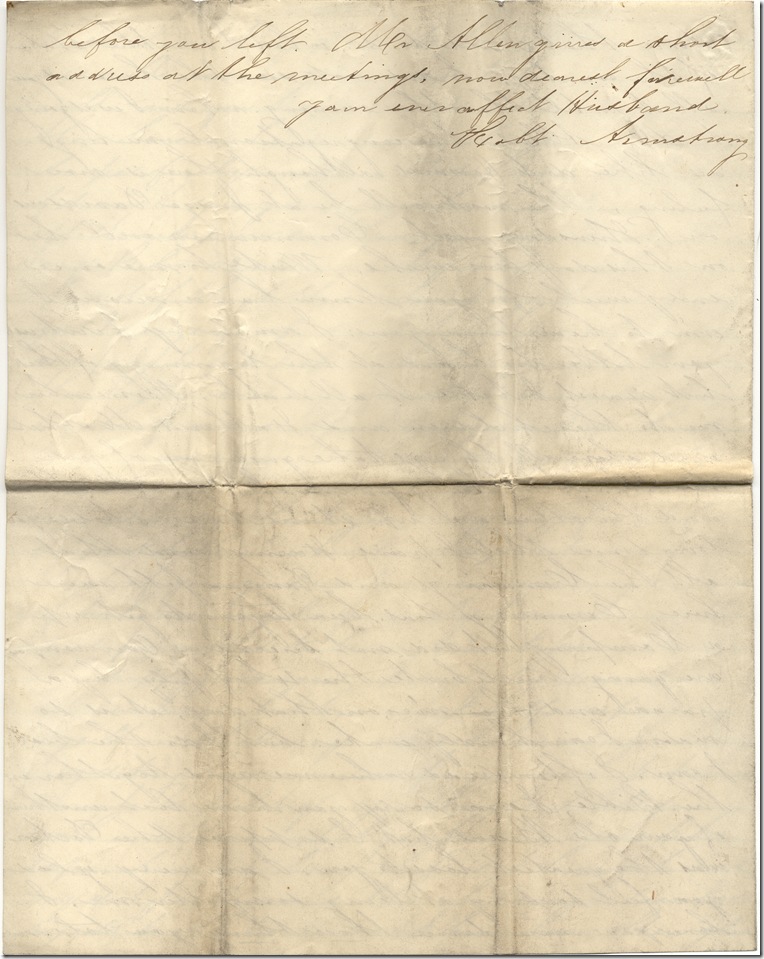
Transcript (excerpt):
Shelbyville June 29th 1861
Saturday Evening
My dearest Annie
I am sorry to say I did not get a letter from you for over two weeks. I have written you a good many both by mail and Express and I do think that if you had been prompt in answering them, I would have had several from you. it nearly kills me to think I cannot hear from you for such a length of time. for you cannot imagine how many things I think have happened to you. I have now arranged a system of correspondence with you which although it will be slower is sure. it is as follows.—I write to you addressing in full on a U.S. stamped envelope. I enclose in it one without stamp paying 5c for Southern passage to Wm. S. Eakins & Co Nashville. They send it with other letters from their friends, to—Gavin Bell & Co—Louisville and they drop it in the Louisville P.O. whence it goes to you, now what you are to do in writing to me is as follows.
You are to enclose it in an envelope—without stamps—as it would be of no use here—directed to me in full. H.A. Shelbyville Tenns, then Enclose U.S. Stamped envelope, Gavin Bell & Co Louisville, Kenky, and they will send it to Wm S. Eakins & Co Nashville, who will send it to me. I write these things in full so that you may understand them and this letter will be principally to give you directions and I am sure from what I know of your affection for me that you will be glad of the opportunity to write to me. be sure as soon as the U.S. new stamps are issued to send some of them to me as it would be very inconvenient to send many to Louisville to pay postage from there to you.
[bottom of p5]
I this day unexpectedly received your letter and by its reception I see the mail is open to you. I feel it is very hard that you have not written to me since June 11th although you ought to have written to me oftener. It is really a disgrace to you, for your spelling and writing I could hardly make it out, nevertheless I am very glad to have it. although it was written in such haste and carelessness it seems to me as if you disliked to commence it. I handed the enclosure to Archie, he did not read it at the time but put it in his pocket, he read it afterwards however and opened a letter he had written to Charlotte to add something to it. I am truly glad to hear Henry and Bidy are well and ever more so to find you are well and you know I would rather have you than houses, lands, or even children. I would be perfectly willing, God knows, to lose all of it just to save you. Your kind letter is very affectionate more so than you ever wrote to me “My Beloved” made me cry very much, and the rest of the letters, when I do get one from you I always go up stairs to the side of my bed and pray before I hope it that you are all well, then I open and cry over it, often when I am in Church and without seeing you I Can hardly help from crying. as to missing you my dearest only love, how could I help it. I am such a fool as to cry about you every day of my life. I cannot help it when I am in private, when I think of your goodness to me undeserving as I was of such an angel. for surely if ever an angel was permitted to be marked to man, I was the happy possessor. I say this dearest in all reverence, but how can I help expressing myself in that way when I have such a longing doting fond reverence for you. in fact it almost amounts to Idolatry. you thought I let you go with indifference, but God knows it was like separating my body. but as I knew it was my duty to you and the children I sacrificed myself to that end. and I have been often glad since that I did do so when I see the state of the country. I did not see the lane as you call it until the other evening when I was going to Mr Allens. The congregational meetings are like doct Howards although there is more feeling. The rest will be at Judge Davidsons on Thursday next. Communion will be on this day two weeks. Write to me once every week for you know how anxious I am to hear from you. I am sorry I criticized your letter so hard at the beginning of this but dearest I take it all back. Remember me to the children and Father & Mother and above all things take good care of your health. Aunt Culy got one of the [illeg.] and the others are up stairs here. I told you long since that I paid Harry, and that all the Cummings and Dimean Jeff were here. Cummings has been trying to get up a Company but did not succeed. Our cavalry are going to celebrate the 4th of July by a parade and Picnic, on that day, it is so warm I can hardly write, but I do the best I can. I often read where we read together in the Bible. I am sorry you have lost another of your old Beaus, but I suppose the Doctor was the greatest loss to you. I am very glad you feel so sorry at being sorry after me. I love you, more since those things things you told me before you left. Mr Allen gives a short address at the meetings, now dearest farewell
Your ever affect Husband
Robt. Armstrong
Citation: Robert Armstrong, autograph letter signed to Anne Armstrong. Shelbyville, Tenn; 29 June 1861. Moore VI:04:19
